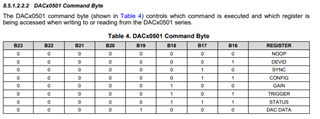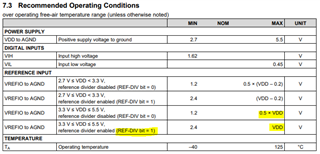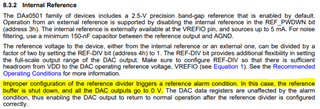Hello,
We have an old audio board product which made use of an LTC1658 DAC. Our audio board consists of a microcontroller, flash and the DAC. Recently, the LTC1658 DAC became obsolete. We chose to replace it with the DAC70501MDQFR. Our microcontroller reads the audio data(WAV file in RIFF format) from the flash. The data read from the flash goes to the microcontroller and the DAC. Our obsolete DAC (LTC1658) is a simple 16-bit input device. It has no configuration registers etc. According to the datasheet for the DAC70501MDQFR (SBAS794D –NOVEMBER 2018–REVISED FEBRUARY 2020), this device requires 24-bit input. We are running the DAC in SPI mode. The datasheet is a bit confusing. Under the I2C section, it mentions that the when receiving data, the DAC requires an 8-bit register number (0x8 for the DAC register) followed by 16 data bits. However, the SPI section does not say that. I have tried sending 24 bits of raw audio data and a 0x8 followed by 16 bits of audio data. In each case, I hear only a few crackling sounds coming out of the speaker of our board rather than the word "CAUTION". We have rung out all the input and output pins attached to the DAC and they all check out. We see sporadic data on the output pin of the DAC (hence the crackling sounds) but no true audio. I have verified that I am correctly clocking the data from the flash device to the DAC per the DAC datasheet. Any assistance would be greatly appreciated. I have been struggling with this for 4 weeks and getting nowhere. Please let me know if you would prefer to communicate via telephone and I can call at your convenience. Thank you.





